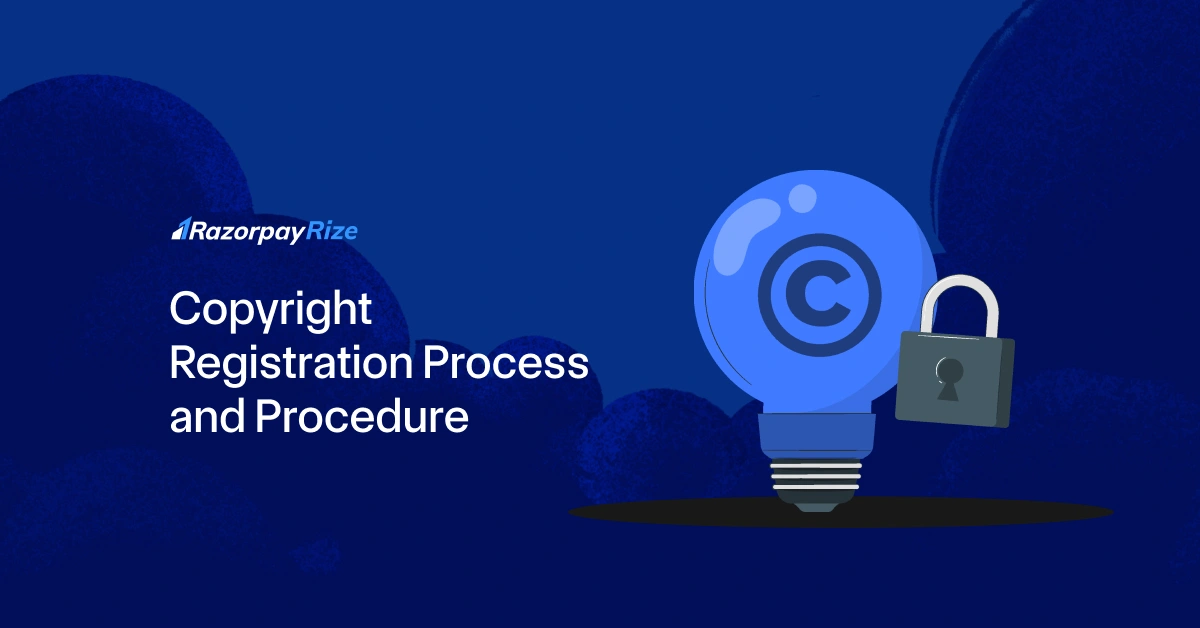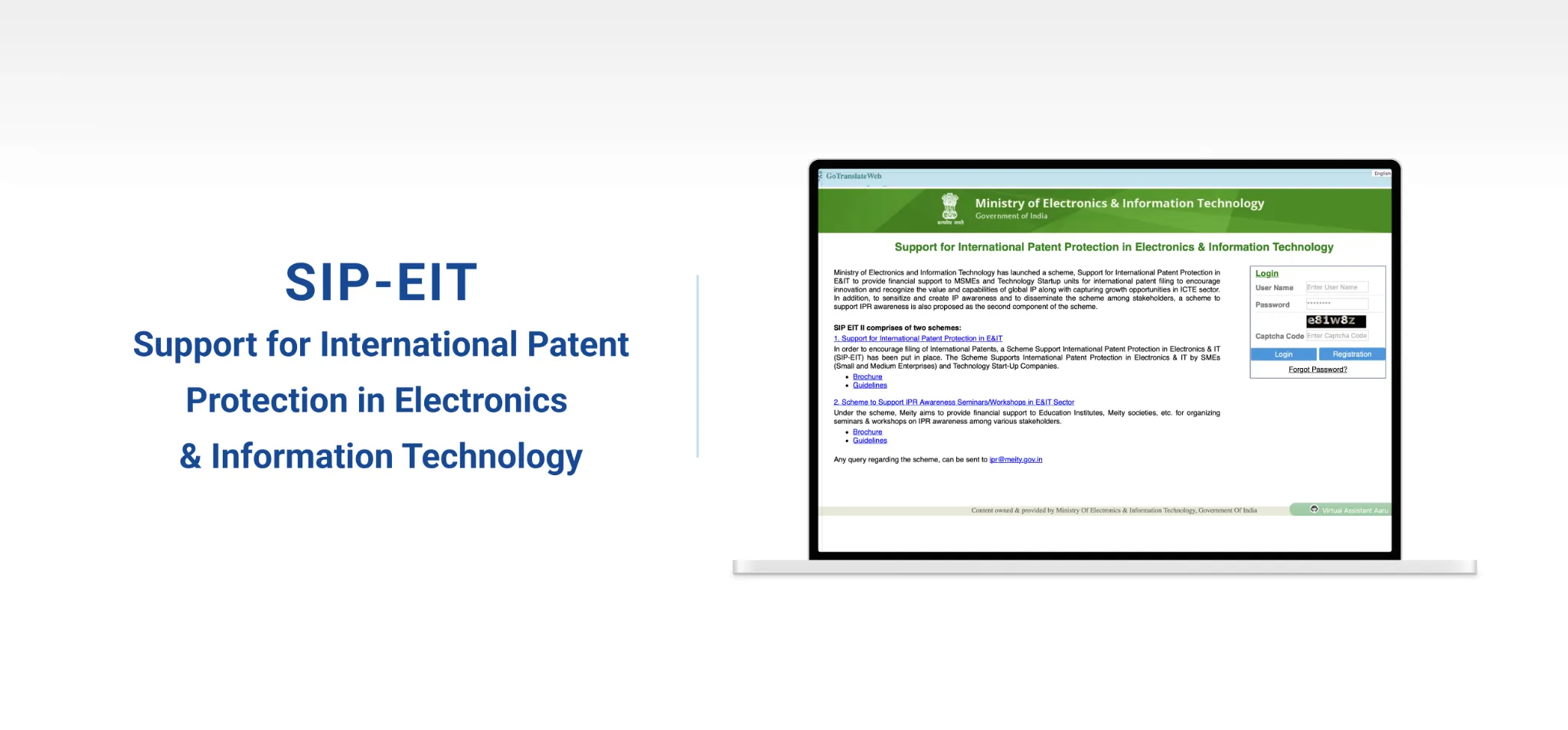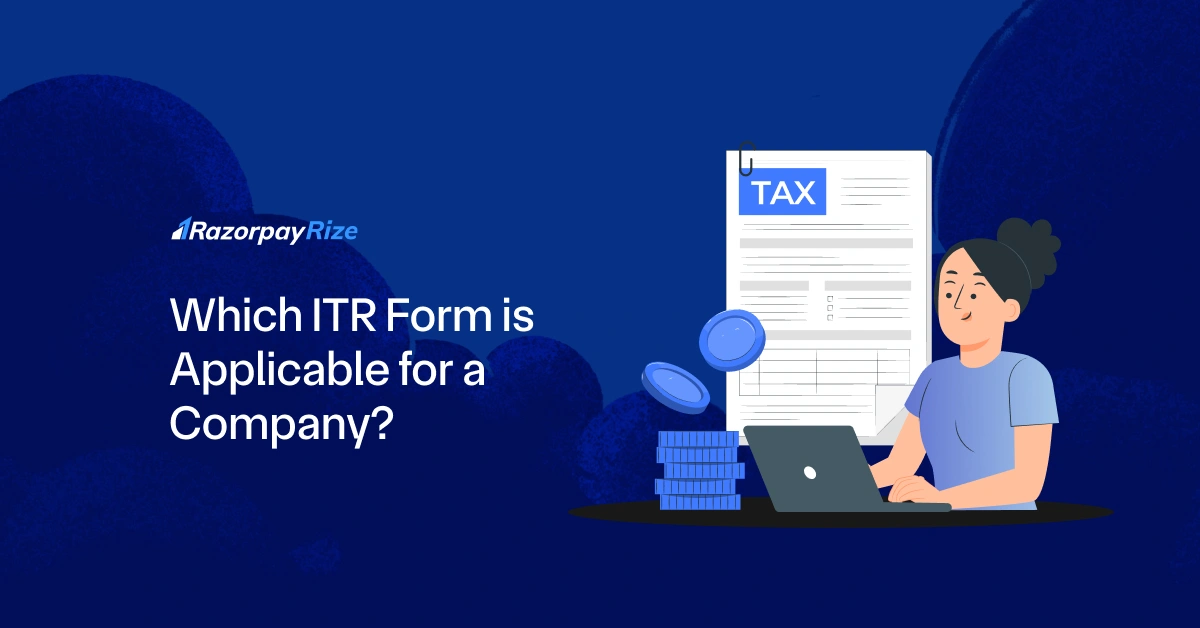Over 37 thousand copyright applications were filed in India in 2024 alone—a sharp rise driven by digital creators, startups, and content-based businesses. As more Indians turn their ideas into income, protecting original work has become more urgent than ever.
But here’s the catch: many creators still don’t realise that copyright registration isn’t automatic or that it plays a crucial role in legal enforcement. Whether you’ve written a book, coded an app, or produced a jingle, this guide will show you how to register your work the right way—and why it’s worth doing before someone else tries to claim it.
Table of Contents
What Is Copyright?
Copyright is a legal right that gives you control over your original creative work—be it writing, music, software, or art. It allows you to reproduce, distribute, and authorise the use of your work. This protection lasts for a limited period, after which the work may enter the public domain.
What Can You Copyright? Understanding the Categories
In India, the Copyright Office recognises six main categories of works that you can protect under copyright law. Each category covers a specific type of creative output and gives you exclusive rights over how that work is used.
Literary Works
This includes books, articles, blogs, software code, and any written content. It protects the expression of ideas, not the ideas themselves.
Dramatic Works
Scripts, screenplays, stage plays, and similar compositions fall under this category. Copyright safeguards the dialogue, structure, and performance elements of the work.
Musical Works
This covers musical notations and compositions, but not the lyrics or sound recordings. It protects the arrangement and melody.
Artistic Works
Paintings, drawings, photographs, sculptures, and even architectural designs qualify here. Copyright ensures your visual creations aren’t copied or used without permission.
Cinematograph Films
This includes movies, videos, and visual recordings. It protects the film as a whole, including its sound and visual elements.
Sound Recordings
These are recordings of voices or music, such as songs, audiobooks, or podcasts. It covers the actual audio content as captured.
The Importance of the Copyright Registration Process
Registering your copyright strengthens your legal ownership and gives you proof in case of disputes. It lets you control how others use, copy, or distribute your work. For example, if someone copies your song or business content without permission, a registered copyright helps you take legal action quickly.
Need for Copyright Registration
While copyright protection exists the moment you create original work, registering it gives you a significant legal edge. In India, registration is not compulsory—but it acts as solid evidence of ownership in court, making it easier to prove your claim if someone uses your work without permission. Whether you're a writer, developer, musician, or business owner, this legal proof can help you enforce your rights and claim damages in case of infringement.
Registration also deters unauthorised use, as it puts others on notice that the work is protected. For creators, it adds a layer of security that encourages more innovation. You’re more likely to invest time and resources into developing original content when you know the law backs your ownership. For businesses, especially those in media, advertising, or tech, copyright registration protects content assets and avoids costly legal battles. It’s a proactive step to secure your creative and commercial interests.
Copyright Symbol
You can start using the copyright symbol (©) as soon as you create original work, but using it after registration strengthens its legal value. It signals that your work is protected and warns others against unauthorised use. The symbol is usually followed by your name and the year of creation.
Legal Rights of a Copyright Owner
Once you register your work, you receive a set of legal rights that help you protect and manage your creation. These rights are:
- Right of Authorship: You are legally recognised as the original creator of the work.
- Right to Reproduce: You alone can make copies of your work in any form—print, digital, or electronic.
- Right to Publish and Distribute: You control when, where, and how your work is made available to the public.
- Right to Public Performance: If your work is meant to be performed (like music or drama), only you can authorise that.
- Right to Translate: You can permit or restrict changes to your work, such as translations, dramatisations, or adaptations into other formats.
- Right to Protect Your Reputation: You can object to any use of your work that distorts or damages your name or intent.
- Right to Transfer or License: You can sell your rights or give others permission to use your work under specific conditions.
How Long Does Copyright Protection Last?
In India, copyright protection generally lasts for 60 years. For original literary, dramatic, musical, and artistic works, this 60-year period starts from the year following the author’s death. For cinematograph films, sound recordings, photographs, posthumous works, anonymous or pseudonymous publications, and works by the government or international organisations, the 60 years are counted from the year of publication. This extended duration ensures that you—and later your legal heirs or assignees—retain exclusive rights to use and monetise the work, while also allowing time to enforce those rights if needed.
Conditions for Filing a Copyright Application
To submit a copyright application in India, you need to follow specific file format and size rules based on the type of work.
- Artistic works must be uploaded in PDF or JPG format.
- Sound recordings should be in MP3 format.
- Literary, dramatic, musical, and software works must be in PDF format, with the file size under 10 MB.
If you're submitting software, make sure the PDF includes at least the first 10 and last 10 pages of the source code. If the full code is less than 20 pages, you can upload the entire code—but it must be unredacted, with no sections blocked out or hidden.
Step-by-Step Copyright Registration Process
Step 1: Visit the Official Website
Go to copyright.gov.in. If you're a first-time user, click on “New User Registration” to create your login credentials. Keep your user ID and password safe for future use.
Step 2: Fill Form XIV and Upload Documents
After logging in, click on “Click for Online Copyright Registration” and open Form XIV.
Fill in key details such as:
- Title, nature, and language of the work
- Applicant’s name, address, nationality, mobile number, and email
- Whether the work is published or unpublished
Then, upload the required documents:
- Scanned signature (max 512 KB)
- For published works: three copies of the work
- For unpublished works: two copies
- For software: first 10 and last 10 pages of the source code
- NOCs from the author (if different), publisher (if any), and anyone whose images appear in the work
Also complete the Statement of Particulars and Statement of Further Particulars, based on the type of work.
Step 3: Pay the Registration Fee
Use the online payment gateway to pay the fee. Charges vary:
- ₹500 for literary, dramatic, musical, or artistic works
- ₹2,000 for sound recordings
- ₹5,000 for software or cinematograph films
Once paid, you’ll receive a Diary Number. This helps track your application status.
Step 4: 30-Day Objection Window
After submission, your application goes public for 30 days to allow objections. If no one raises an objection, it moves forward automatically.
Step 5: Scrutiny and Review
If no objections are raised, the Registrar reviews your application and documents for errors or missing information. If objections are raised, both parties are notified.
Step 6: Hearing (if needed)
A hearing is scheduled. Both sides present their case, and the Registrar makes a decision.
Step 7: Receive the Certificate
If approved, you’ll get a Copyright Registration Certificate. This document legally proves your ownership and is useful in any future disputes.
Note: You must file a separate application for each individual work.
Starting a business? Secure your brand and ideas—get expert help with company and copyright registration with Razorpay Rize.
Checking the Status of Copyright Registration Application
To check the status of your copyright registration application online, visit the official Copyright Office website. Look for the “Status of Application” section on the homepage. You’ll need your diary number or acknowledgment number, which you receive after submitting your application.
Enter this number in the search field and submit it to view the current status. The portal will show if your application is under scrutiny, awaiting response, or approved.
Distinguishing Copyright, Trademarks, and Patents
Copyright, trademark, and patent are legal tools that protect different kinds of work.
- Copyright protects original creative content you make—like a story, a song, a painting, or even computer code. It stops others from copying or using your work without permission. Example: You write a short film script—copyright protects the script.
- Trademark protects your brand identity—like your business name, logo, or tagline. It makes sure no one else uses something similar that could confuse your customers. Example: You design a logo for your film company—trademark protects that logo.
- Patent protects new inventions—such as machines, products, or special methods. It gives you the right to stop others from making or selling your invention. Example: You invent a new type of camera—a patent protects the invention.
These rights matter because they give you control, stop others from copying your work, and let you take legal action if needed. Understanding what each protects helps you avoid confusion and ensures your ideas are legally safe.
Frequently Asked Questions
Private Limited Company
(Pvt. Ltd.)
- Service-based businesses
- Businesses looking to issue shares
- Businesses seeking investment through equity-based funding
Limited Liability Partnership
(LLP)
- Professional services
- Firms seeking any capital contribution from Partners
- Firms sharing resources with limited liability
One Person Company
(OPC)
- Freelancers, Small-scale businesses
- Businesses looking for minimal compliance
- Businesses looking for single-ownership
Private Limited Company
(Pvt. Ltd.)
- Service-based businesses
- Businesses looking to issue shares
- Businesses seeking investment through equity-based funding
One Person Company
(OPC)
- Freelancers, Small-scale businesses
- Businesses looking for minimal compliance
- Businesses looking for single-ownership
Private Limited Company
(Pvt. Ltd.)
- Service-based businesses
- Businesses looking to issue shares
- Businesses seeking investment through equity-based funding
Limited Liability Partnership
(LLP)
- Professional services
- Firms seeking any capital contribution from Partners
- Firms sharing resources with limited liability
Frequently Asked Questions
What is the procedure for registration of copyright?
To register a copyright in India, visit the official Copyright Office website and fill out the online application. Select the type of work, upload the required documents in the correct format, and pay the prescribed fee. Once submitted, you'll receive a diary number. The application goes through scrutiny, and if there are no objections or errors, the registration certificate is issued.
What documents are required for copyright?
You need a completed application form, copies of the original work in the required format, and a No Objection Certificate (NOC) if the work involves third-party content. For software, include the first 10 and last 10 pages of unredacted source code.
How long is a copyright registration valid?
The duration depends on the type of work. For literary, artistic, musical, and dramatic works, copyright lasts for the author’s lifetime plus 60 years. For works like films, photographs, and sound recordings, protection lasts for 60 years from the year of publication.
How do you register your story for copyright?
To register a story, choose "Literary Work" as the category in the online copyright application. Upload your story in PDF format (under 10 MB), pay the fee, and submit the form. Keep your diary number for tracking status. Once approved, you’ll receive a copyright registration certificate.

















